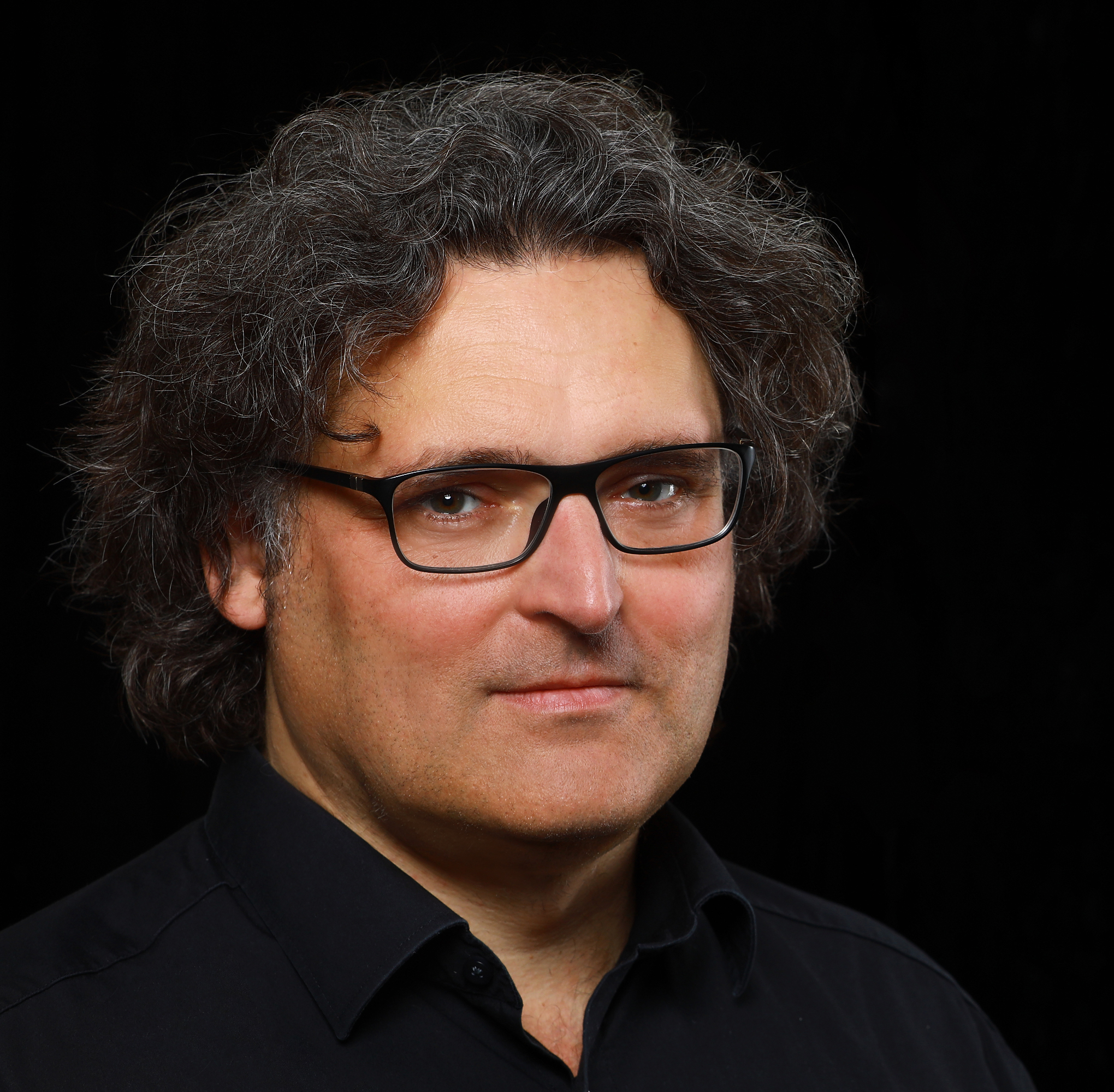

Max Doehlemann
*21 December 1970
Works by Max Doehlemann
Biography
Max Doehlemann was born in Hamburg in 1970. He studied Composition and Piano at the Musikhochschule in Munich until 1997 and in addition Orchestral Conducting at the 'Hanns Eisler' Musikhochschule in Berlin. Since then Composition has formed the centre of his musical activity. In 1995 he won the Prize for Composition of the Reinl Foundation (Vienna) and in 2010 the 'International Music Prize for Excellence in Composition' of the Music Academy of Colorado. Since then Doehlemann worked in a wide range of musical activities in addition to composition, as a répétiteur (for example at the Komische Oper, Berlin), as composer for a daily 'soap opera' on German television, as a theatre musician especially in the 'Berliner Ensemble' for Claus Peymann (as musical leader, composer, pianist), as a jazz pianist and a bandleader. He has taken part in many concerts both in Germany and abroad, often with inter-cultural or multi-genre concepts. Music for Installations and various media requirements also illustrate further facets of his work. Doehlemann works together with international artists, such as the violinist Liv Migdal or the cellist Ramon Jaffé, with the Brandenburg State Orchestra, the German Chamber Orchestra (Berlin) and many others. He is active as a project initiator and as such is a co-founder of the Jewish Theatre Ship 'MS Goldberg, Berlin'. As a 'classical pianist' he is especially to be heard in the fields of 'New Music' and accompanying Lieder, also as part of a comedy duo, and more.
About the music
It is impossible to allocate Max Doehlemann's music to a specific 'school' or type. One could describe it as a form of cosmopolitan, undogmatic modernity, which emphasies the importance of a musical narrative and formal stringency, but at the same time Doehlemann is someone who can combine styles and genres in an unusual manner, which then leads to new musical perspectives. The result ranges from concert pieces to experimental forms which modulate between Music, Literature and modern Musical Theatre. His 'Jazz Side' also allows the composer in him to appear occasionally appear with his musical attitudes. Doehlemann is not afraid of melodic or acoustic beauty but is careful to distance himself from what he considers to be non-meaningful and repetitive models of the 'New Classic'. Doehlemann considers the composition of Lieder as a form of musical laboratory in which he can take the opportunity to develop new music essences and forms of narrative. He has drawn important inspirations from the music of Oriental Jews and works in band projects with such musicians. Doehlemann has developed an own theory of melodic-harmony, regarding which a book is scheduled to appear shortly.
statement
Max Doehlemann: „Already during my time as a student at the Musikhochschule in Munich at the beginning of the 1990’s it was clear to me that the promises which the so-called ‚Neue Musik‘, at that time still dominating the academic musical world, as expressed at Darmstadt or Donaueschingen, was no longer delivering what it promised. This Music had separated itself from the general experience of Music as such and it was celebrated only in highly-specialised, almost cultic groups. Within the academic musical world one could either attach oneself to this sect of lovers of ‚New Music‘ or else one would be labelled as ‚conservative‘ and ‚conventional‘. I felt I wanted to escape from this limited world and experience the larger world of Music on my own. I broke off from the academic career that was offered and managed to support myself as a freelance musician. In the early- and mid-1990’s I composed at record speed music for an audience of millions for a daily television Soap Opera – but after a while even this seemed rather predictable artistically and so I moved on again. I composed, played piano, worked on some rather bizarre theatrical productions (for example in 1998 the Trash-Theatre piece ‚Hamlet, the Sex Comedy‘ with Rosa von Praunheim), I worked on Off-Projects; as an Assessor I valued the estate of Rio Reiser. Together with the author Sten Nadolny I attempted to write a Musical – a Project however which has remained dormant for some years. Work at the Berliner Ensemble then became a dominant feature and also gaining experience at other theatres. I learned a great deal from the Theatre, including the fact that often ‚‘a Little can be a Lot‘‘. In Israel I played with Oriental musicians. I have always been a musician closely associated with Texts, whether from literature or the theatre, and non-musical sources have always played a major inspirational role. I now believe that I have found my own individual and personal way, one which links modernity and unconventionality with genuine sensitivity, beauty and a joy at experimentation with new harmonic and melodic concepts.‘‘
